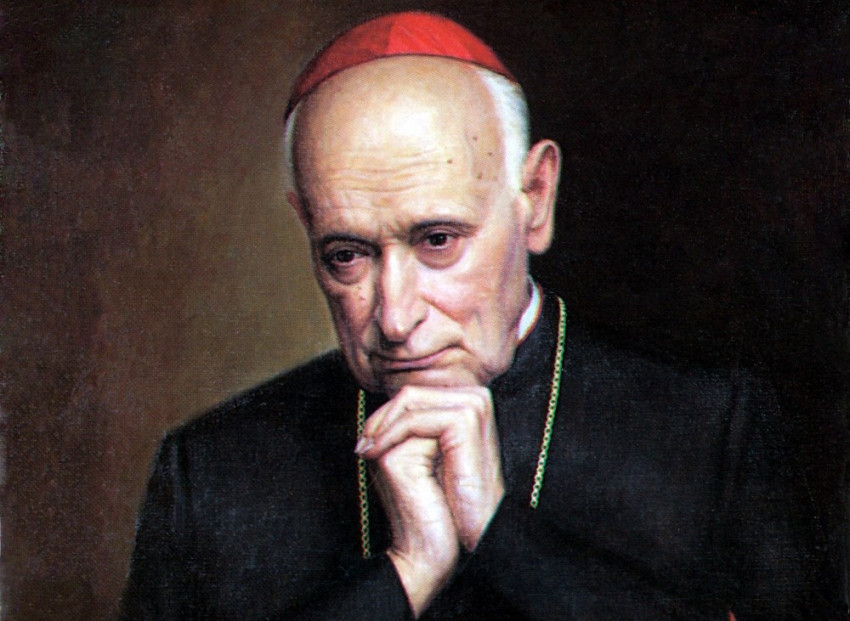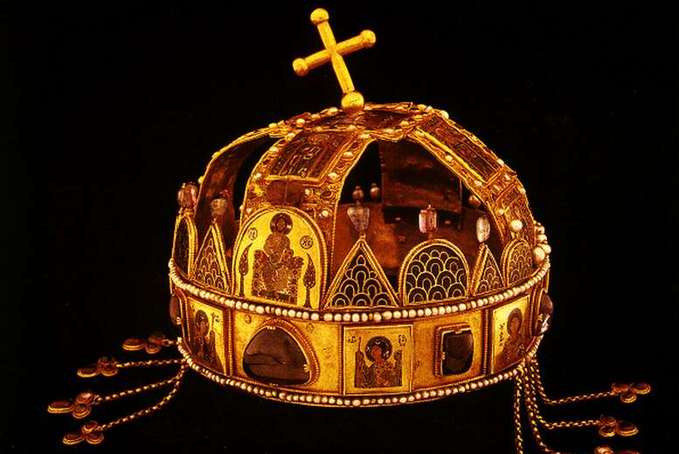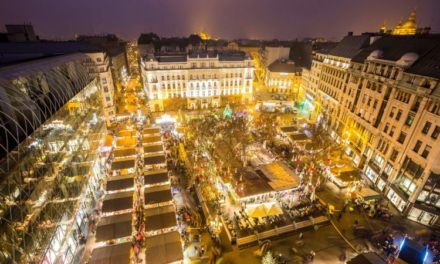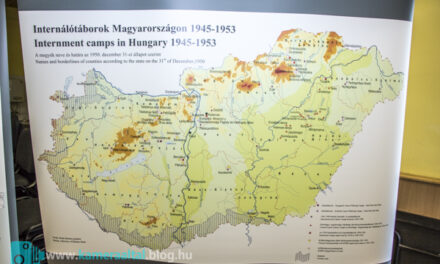During the constitutional crisis of 1944, during the October days that turned into a dictatorship, the prince-primate - then Serédi - came into consideration as temporary head of state.
Previously, as a member of the Council of State, in the body meeting in the event of a vacancy in the office of the governor, the XIX of 1937. according to the law, the prime minister, the president of the two houses of the parliament, the president of the Kúria, the president of the administrative court and the commander-in-chief of the national defense took part together with the prince-primate. Miklós Horthy , the Council of State met on October 27 and November 2, 1944, when Júsztinián Serédi warned to observe the rule of law.
Mindszenty accurately assessed his role in this, he knew Serédi's legacy well. He knew and appreciated the history of the Hungarian nation. His authentic education in public law was combined with a strong sense of professionalism. In Hungary, which was suffering under the Soviet imperial occupation, he realized that Providence had given him the task of an inescapable duty and mission, the service of historical-public law and Christian moral justice. This was his class, both as the high priest representing the country's Catholic Church in terms of church governance, and as the bearer of the only historical-public law office rooted in public law and historical constitutionalism in a coercive republican system that advocates the interruption of legal continuity.
He was convinced that a good agreement could not be concluded with the autocratic system, that the agreement meant a heavy loss for the church and the nation, but a political victory for the dictatorship system. That is why he rejected unprincipled agreements, and his conviction and attitude have been confirmed by history.
According to some views, Mindszenty was a kind of temporary, extraordinary head of state according to historical Hungarian public law, but he could not actually use his powers after 1946, but he had taken similar steps before and never renounced his rights as prince-primate. He did not act as a church leader, but as a public dignitary when he wanted to convene the upper house in 1945 to restore the broken Hungarian statehood. In his capacity as the hidden head of state, he requested aid, negotiated and corresponded with leading politicians.
The occupation and the republican, civil democratic political practice placed his person in a vacuum. He did not renounce his constitutional role until the end of his life, this was allegedly emphasized by King VI. Pope Pál , when the archbishop of Esztergom was declared vacant by the head of the church, yielding to the concept of church affairs of the Kádár dictatorship. József Mindszenty appealed to a future sovereign Hungarian National Assembly, referring the relevant provision to its jurisdiction. However, no decision was made in this regard after the system change, according to this legitimist interpretation.
In the huge collection of documents in Mindszenty's legacy, there are a few complex sentences, originally written in English and then translated into Hungarian, from a VI. In a draft letter addressed to Pope Pál, but not sent, by Cardinal Mindszenty on his own official coat-of-arms paper, cleared, dated and signed in the Mindszenty Archive in Budapest. We published its facsimile - writes the Ádám Somorjai it - and the reactions show that its interpretation is not easy. This letter is the last link in the correspondence that preceded VI. Pope Pál's decision to declare the archbishopric of Esztergom vacant; drafts and clarifications were prepared after the decision. Date: March 4th (or April 3rd) 1974.
"The day will come when the National Assembly revokes the decision of 1974, deeming it unconstitutional, illegal and a violation of tradition, because the Nation was not consulted at all on an issue that belongs to it. Putting it down does not mean that it has ceased to be a primate. Not his person, but the Nation's right to independence derives from the divine will and natural law, and this forces him to declare a clear position, as well as to preserve the office of the Primate."
This letter, which was not sent, but duly signed, proves Mindszenty's strong commitment to public law, his patriotism, his professionalism, and his conviction that he is the only dignified person of Hungary with a legitimate, i.e. authentic origin - a position rooted in the historical constitution. Since he considers this office - the status of the cardinal-prince-primate - to be of both church and state origin and character, he expresses his view that the public law relevance and validity of his office can remain despite his questionable ecclesiastical removal, and that its fate depends on a constitutionally legitimate national assembly.
It says a lot about the cardinal's spirituality that he didn't send the letter, obviously knowing that it would have caused an unpredictable reaction in the papacy and the international community in connection with a papal decision against which there is no place or chance of legal remedy in the ecclesiastical way. Rome's locuta... He also saw that his special position under public law would certainly not be understood by the officials of the Vatican, and if they were, they would not appreciate it. Even less could he count on a solution to this situation under public law in Hungary due to its impossibility to this day. After all, this would have assumed the restoration of the suspended formal (institutional) legal continuity. This letter is a serious addition to a better understanding of Mindszenty's fate, the difficulties of his canonization, and his ecclesiastical and historical judgment in Hungary.... Evidence of his unbreakable loyalty to the Catholic Church and his country, Hungary. If there is a Mindszenty mystery, then the key to it is this rock-solid loyalty, for him unbreakable in its elements, which is best shown in his special relationship with the Holy Crown.

Photo: MKPK Press Service
During the illegal proceedings against him in 1948-49, even after forced confessions, the prince-primate still had enough strength to protest against the accusation of overthrowing the republic. He claimed that he did not consider the kingdom to be timely or practicable, and he made the same statement Cardinal Spellman . Mindszenty always stands out with his realistic judgments. He was very familiar with the Defense of the Republic Act. The Holy See also considered it necessary to establish as a fact in January 1949, before Mindszenty's trial, that the prince-primate, together with the episcopal faculty, repeatedly accepted democracy, and even wished for it from the heart. He also states that the Hungarian Catholics were good Catholics for a thousand years in the kingdom and want to remain good Catholics in the republic as well. It is cited from 1883 by XIII. Leo's circular (the Libertá): The church does not reject any of the various forms of government if they are suitable in themselves for the benefit of the citizens.
Nevertheless, the doctrine of the Holy Crown, extended to all national members and citizens, can ensure the inner peace of Christian brothers and sisters, provide the moral content of coexistence and the common denominator of Christian democracy.
József Mindszenty protested against the "importation" of the republic In two letters of public law history and constitutional importance, he vetoed the proclamation of the republic on New Year's Eve 1945 and the actual proclamation in 1946. The letters are the legal protests of the last constitutional, public law representative of the Kingdom of Hungary against the introduction (as Mindszenty puts it, using the correct image: "introduction") of the republic. He acted as a public dignitary in this case, as he maintained this role throughout, essentially until the day of his death. This public-law dignity - after the German occupation, the Arrow coup, during the Soviet occupation, in the absence of the governor, and being an impediment to the hereditary king - was the main historical public-law office in the Kingdom of Hungary according to our historical constitution.
As a homo regius, he could have held the role of head of state on a theoretical basis, practically without any chance, which he knew well, the duality of his sense of reality and sense of mission made his role dramatic. It represents legality, constitutional continuity, national independence - clearly on the side of the kingdom. His legitimism had a social, national and democratic approach, he was on the path that Albert Apponyi, Gyula Andrássy Jr., and Pál Teleki, and which was later Sándor Pető as "the victory of legitimist thought would restore the ancient constitution, protect the Germanic and from the Pan-Slavic danger, from the construction of the fascist command-and-rule order, and would ensure that Hungarians fulfill their historical vocation. The essence of this profession is the peace of Europe, the political organization of the peoples of the Danube basin, balancing."
"In the case of József Mindszenty, the independence of the kingdom and the nation are one and the same, they cannot be separated from each other. The prince-primate was an exemplary person loyal to the dynasty (Habsburg-Lorraine House), but at the same time a great patriot who rejected all forms of revolutions and dictatorships (communist, arrow-headed, Nazi). His set of arguments, with which he accuses the republic of the foreign occupation and the democratic and left-wing government that cooperates with it (in the words of the prince-primate: collaborator) and puts it before the nation's judgment seat, can still be ammunition and cause for further reflection for all Hungarian royalists. "
The addressees of the letters ( Zoltán Tildy , later President of the First Republic of Hungary; Béla Varga – member of the National High Council, later President of the National Assembly) did not respond to the prince-primate, the republic was proclaimed, the legal continuity suspended in 1944 had already been completely abolished In 1946..












